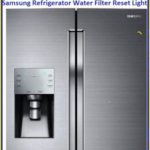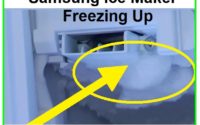LG Refrigerator Problems : How to Fix It
LG Refrigerator Problems : How to Fix Them Step By Step

LG Refrigerator Problems Its quality and dependability have made LG a well-known brand. Over the course of its more than 50-year existence, LG has built a solid reputation for producing highly durable goods that people can rely on. But that does not imply that their goods are faultless. Despite the fact that technology has come a long way, even appliances from well-known manufacturers like LG have issues.
You can start troubleshooting problems by figuring out what might be wrong by having a basic understanding of the most typical problems. Although LG refrigerators are excellent products, there are a few common problems you should be aware of in case your fridge starts to malfunction.
Consult your owner’s handbook in addition to this tutorial since it is a broad overview that is not particular to any LG brand or model.
1. The LG refrigerator’s linear compressor is broken
Our new appliances are becoming quieter, more effective, and easier to maintain as technology develops. The linear compressor, which is now available in a few models, is one element that LG is constantly seeking to improve. In addition to being more energy-efficient and quieter than traditional compressors, it only operates when the appliance need it.
Sadly, a lot of LG customers have complained about compressor issues. The most frequent offender is a bad seal, which might prevent the compressor from operating. Therefore, there is a significant likelihood that your compressor is malfunctioning if your refrigerator is operating but not cooling. You will need to hire a certified professional to fix it if this is the problem.
2. LG Refrigerator Not Cooling
Despite its enormous popularity and widespread use, LG refrigerators don’t have the finest cooling performance. In fact, customers have complained that their refrigerators have stopped cooling totally.
For your fridge to cool down and maintain its cooling, many various parts must cooperate. The LG refrigerator may cease to function entirely if any of these parts develop problems or stop working.
You will need a general understanding of the signs and problems with your fridge in order to troubleshoot these problems.
A Defective Compressor
The compressor in your refrigerator keeps the food there cold and fresh. It is a very delicate design, so defects or problems with the compressor could prevent the fridge from cooling effectively or from lingering too warm. A compressor is typically found in the back of the refrigerator, at the bottom.
The compressor must be accessed by removing the back panel. Always refer to your owner’s manual if you experience any problems. If everything is operating as it should, you should hear a running or humming sound. A certified technician should inspect the problem if you are unsure.
A Condenser Motor With Problems
The condenser motor is yet another vital component. You may notice your fridge overheating, making unusual noises, or paying higher than usual energy bills if the motor is not operating properly.
You should start by looking for any accumulation or debris that might be obstructing the fan blades on your condenser coils.
Your freezer and refrigerator may shut off if the airflow is severely reduced. It’s possible that you need a new compressor motor if your problems persist even after you’ve cleaned the coils and made sure the fan blades can move freely.
Relay Start Fault
Your refrigerator’s compressor might not operate properly as a result of a bad start relay. Problem-solving for this one is simple. Checking the relay’s continuity is all that is required.
You may access the relay from the bottom of the device by starting by removing the rear panel. Utilizing a multimeter, check the relay for continuity once you’ve discovered it. Replacement of the relay is required if there is no continuity.
The Evaporator Fan Motor Is Broken
Cool air is moved from your freezer into your refrigerator by the evaporator. If your refrigerator is having trouble cooling, the evaporator fan motor could potentially be malfunctioning.
In order to get the fan to spin, you need first check to make sure there isn’t any buildup or obstruction. In addition, you should vacuum the motor to remove any buildups and confirm that it is operating freely.
The LG fridge is dripping water
Any time water is seen dripping from an appliance, especially your refrigerator, it is never a good sign. The unfortunate thing is that this is also one of the most frequent problems with refrigerators. The majority of the time when a door is closed, there is a water leak. Thankfully, most leaky fridges can be fixed by following a few simple procedures.
Frosted Or Obstructed Drain Lines: For a number of reasons, a leaking refrigerator is dangerous. For one thing, the food within could rot, and if water spills, it could harm the cabinets below.
Even the floor may get wet from the refrigerator. Make sure your refrigerator drain is not blocked or frozen as one surefire approach to stop this. If so, you must melt the ice or remove the debris with hot water.
Defective Tank Assembly: Failure in the tank connections is another reason for interior leakage. Leaks should be visually inspected, and if there is any damage, it should be replaced. Your water input valve and housing are equivalent in this regard. Keep an eye out for damage or cracks, and replace it right once if you do.
Methods for resetting an LG refrigerator
An important skill to have is the ability to reset your LG refrigerator in case you experience any of these typical problems or any unexpected problems. Open the appliance’s doors first, then push and hold the buttons for the refrigerator and ice plus for 5 seconds. Your fridge should now be reset after 5 seconds, at which point your panel should start blinking.
YOU MAY ALSO READ THIS
- Bosch Dishwasher E24 Error Code How to Fix It |
- lg freezer not freezing | LG Refrigerator Working
- LG Tower AC Error Codes|LG Cassette AC Error Codes | Inverter Type
- LG Split System Air Conditioner Error Code Troubleshooting – Maintenance
- LG Dishwasher Error Code | How To Fix And Repair Fault Codes
- Arderia Gas Boiler Error Codes







